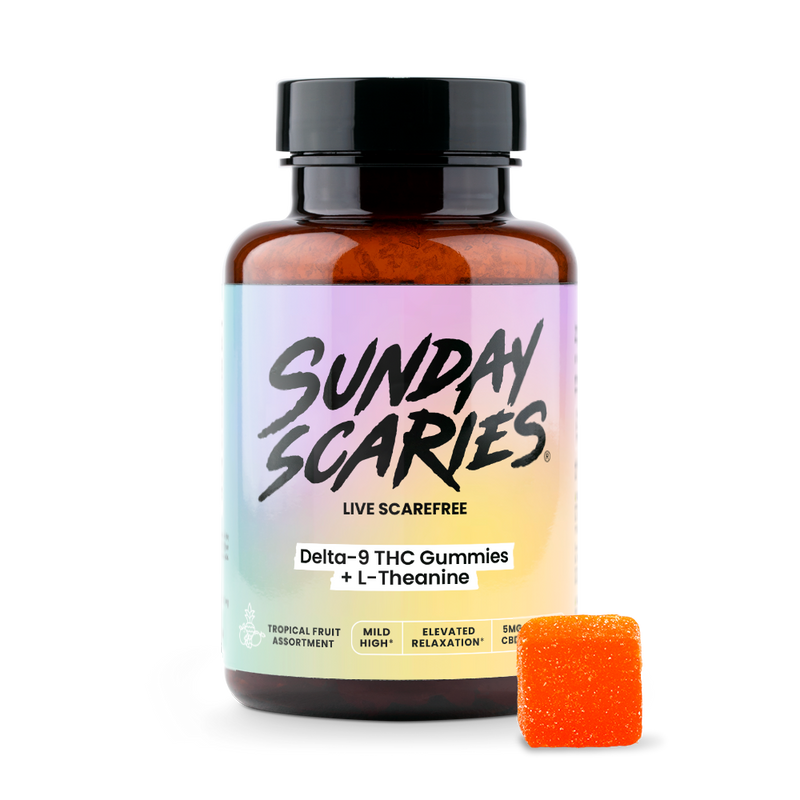
The Full List of Delta-9 Gummies Side Effects

Delta-9 gummies can cause a range of side effects, including anxiety, paranoia, cognitive impairment, dry mouth, red eyes, increased heart rate, drowsiness, dizziness, nausea, altered appetite, and in some cases, long-term effects like tolerance, dependence, and cognitive decline. It's essential to be aware of potential interactions with medications and other substances, as well as the legal and safety implications of use.
Delta-9 THC, the primary psychoactive component found in cannabis, has seen a surge in popularity with the advent of edibles, particularly gummies.
These Delta 9-infused gummies offer a discreet and convenient way to experience the effects of THC.
While many enjoy the relaxing, euphoric experience these gummies provide, it's essential to understand that consuming Delta-9 THC comes with a range of side effects.
Whether you’re a seasoned user or a newcomer, being informed about these potential side effects can help you make safer, more informed choices.
1. Psychological Effects
Delta-9 THC is known for its strong psychological impact. These effects can be both positive and negative, depending on the user’s tolerance, mental state, and the dosage consumed.
A. Anxiety and Paranoia
One of the most common side effects of Delta-9 THC, especially at higher doses, is anxiety.
For some, what starts as a relaxing experience can quickly spiral into feelings of unease or even paranoia. This can be particularly pronounced in individuals prone to anxiety or those consuming higher doses than they're accustomed to.
Users may experience racing thoughts, irrational fears, and a general sense of discomfort that can last for several hours.
The side effect of paranoia is usually the number one reason why users stay away from buying THC gummies. This is particularly frustrating for these users because many users feel the exact opposite effects: being chill, relaxed and Scarefree.
B. Altered Perception of Time
Delta-9 THC can significantly alter your perception of time. Many users report feeling like time slows down, which can be disorienting.
This altered perception can make experiences seem longer than they are, which might contribute to anxiety, especially if the user is waiting for the effects to wear off.
Altered perception of time can also negatively affect your working life or social interactions, since the use of delta-9 gummies may cause users to be late for work or for an event.
C. Cognitive Impairment
Short-term cognitive impairment is another side effect of Delta-9 THC. This can manifest as difficulty concentrating, short-term memory loss, and trouble with problem-solving or multitasking.
While these effects are typically temporary, they can be frustrating, especially if you need to focus on tasks that require mental clarity.
Many users find themselves stuttering during conversations or having a hard time putting thoughts into words, causing delayed responses. This is obviously not ideal if you need to be super "sharp" and on top of it.
But, it's worth noting that many individuals do feel like they're quick and witty after consuming delta-9 gummies. This is especially true if the conversation is creative or abstract.
D. Hallucinations
In rare cases, particularly with high doses, Delta-9 THC can induce hallucinations. These can range from mild visual distortions to more intense experiences.
To elaborate, sometimes you can see objects melt or mold into each other, usually in a wavy, psychedelic manner. When this occurs, you can still make out what the objects are, but they seem to blend together or take on a whole new form.
For the intense experiences, many users have reporting seeing visuals that are not even there... very similar to a mirage.
While some users might find this intriguing, for others, it can be distressing and contribute to feelings of paranoia or fear.
2. Physical Side Effects
The physical side effects of Delta-9 gummies are varied and can affect different parts of the body. These effects can range from mild discomfort to more severe reactions, depending on the individual and the dosage.
A. Dry Mouth (Cottonmouth)
One of the most common physical side effects of Delta-9 THC is dry mouth, often referred to as cottonmouth.
This occurs because THC interacts with the receptors in the salivary glands, inhibiting saliva production.
While this side effect is usually mild, it can be uncomfortable, leading to a persistent dry or sticky feeling in the mouth.
When you have cottonmouth, your spit is extremely white and viscous. It's common to drink a lot of water and still have this feeling persist.
Not to worry though, this is more of a minor inconvenience versus a medical emergency.
B. Red Eyes
Red or bloodshot eyes are another hallmark of THC consumption. This occurs due to THC's ability to dilate blood vessels and increase blood flow, particularly in the eyes.
While harmless, red eyes can be a telltale sign of recent THC use, which some users might want to avoid.
Using Clear Eyes or other eye drops is a common technique to mask the fact that you're high. This actually dries the eyes out but can make them look crystal white, which is why many users carry them around.
C. Increased Heart Rate
Delta-9 THC can cause an increase in heart rate, which can be concerning for individuals with pre-existing heart conditions.
This side effect, known as tachycardia, can also contribute to feelings of anxiety or panic, especially if the user is not expecting it.
In most cases, the elevated heart rate is temporary, but it's important to be aware of this effect, particularly if you have a heart condition.
If you do not have a heart condition, it's important to note that this minor fluttering will usually go away on its own. Also, panicking or being fearful can exacerbate the problem, so try and remain calm and distract yourself with a fun or calming activity.
D. Drowsiness and Fatigue
Many users of Delta-9 gummies experience drowsiness or fatigue, particularly as the effects begin to wear off.
This can be beneficial for those using THC to aid with sleep, but it can be problematic if you're trying to stay alert or need to operate machinery or drive.
The sedative effects of Delta-9 can vary, with some users feeling only mild drowsiness and others experiencing a strong urge to sleep.
Again, many users actually aim for this as a desired effect. Or to help them relax, unwind and take a nap when dealing with phenomenons like the sunday scaries, sunday blues or post-concert depression.
E. Dizziness
Dizziness or lightheadedness is another common physical side effect. This can occur due to the impact of THC on blood pressure, often causing a drop that can lead to feelings of unsteadiness, particularly when standing up quickly.
Staying hydrated and consuming THC in a safe, seated environment can help mitigate this effect.
This is also important to remember if you're taking delta-9 gummies before going to an amusement park, on a boat ride or when traveling on a plane.
If you are under the influence of delta-9 gummies and start feeling dizzy, try deep breathing, focusing on a fixed point, and avoiding bright lights or screens.
F. Nausea and Vomiting
Ironically, while THC is often used to combat nausea, it can also induce it in some users, particularly in higher doses.
This paradoxical reaction is known as cannabinoid hyperemesis syndrome (CHS) and can lead to severe nausea and vomiting.
It's a rare condition but one to be aware of, especially if you experience persistent nausea after consuming Delta-9 gummies.
If you are feeling nauseous after consumption, try avoiding strong smells, staying hydrated and drinking ginger or peppermint tea. If the nausea persists, consider using an over-the-counter medication such as Dramamine.
G. Appetite Changes
Delta-9 THC is well-known for inducing a strong sense of hunger, commonly referred to as "the munchies."
While this can be a welcome effect for some, particularly those with conditions that affect appetite, it can also lead to overeating and discomfort.
If you're worried about gaining weight after consistent use of delta-9 gummies, try stocking your fridge with healthy snacks like cut up veggies or fresh fruit so when the munchies do hit you do yourself a favor and eat clean.
In some cases, users might experience the opposite effect, with a suppressed appetite.
3. Long-Term Effects
While many side effects of Delta-9 THC are short-lived and subside after the effects wear off, some users may experience longer-term effects, especially with regular use.
A. Tolerance and Dependence
Regular use of Delta-9 THC can lead to the development of tolerance, where the user needs to consume more to achieve the same effects. Over time, this can also lead to dependence, where the user feels they need THC to function normally.
While not as physically addictive as substances like nicotine or opioids, psychological dependence can still be a significant issue, impacting daily life and leading to potential withdrawal symptoms if usage is stopped.
B. Cognitive Decline
Long-term, heavy use of Delta-9 THC has been linked to cognitive decline, particularly in areas like memory and learning.
This effect is more pronounced in individuals who begin using THC at a young age, as the developing brain is more susceptible to its effects.
While some of this decline may be reversible with cessation, studies suggest that long-term heavy use can lead to lasting changes in cognitive function.
Just like anything else, too much of one thing is bad enough. Use with moderation and don't overdo it.
C. Respiratory Issues (if smoked)
While this side effect is not specific to gummies, it's worth noting that those who consume Delta-9 THC via smoking are at risk of developing respiratory issues similar to those seen in smokers of tobacco.
These can include chronic bronchitis, coughing, and an increased risk of lung infections.
However, these risks are largely mitigated when consuming THC via edibles like gummies.
This is one of the main reasons why they are becoming so popular, along with the fact that they are discreet and are much less taboo to consume in public.
D. Mental Health Concerns
There is ongoing debate about the long-term impact of THC on mental health.
Some studies suggest that regular use of high-THC products can exacerbate or trigger mental health conditions such as depression, anxiety, and in rare cases, psychosis, particularly in individuals with a predisposition to these conditions.
On the contrary, many individuals use THC in order to deal with feeling down-and-out or stressed. Everyone is different, so it's wise to record your experiences and ensure you're having a pleasant time while using.
It's crucial to monitor your mental health and seek professional advice if you notice worsening symptoms while using Delta-9 gummies.
4. Drug Interactions
Delta-9 THC can interact with other medications or substances, leading to unexpected side effects. It's important to be aware of these potential interactions to avoid adverse reactions.
A. Blood Pressure Medications
Delta-9 THC can lower blood pressure, which can be problematic when combined with blood pressure medications.
This interaction can lead to a significant drop in blood pressure, causing dizziness, fainting, or other related symptoms.
If you're on blood pressure medication, it's essential to consult with your healthcare provider before using Delta-9 gummies.
B. Antidepressants and Antipsychotics
THC can interact with certain antidepressants and antipsychotic medications, potentially altering their effectiveness or increasing the risk of side effects.
For example, THC can enhance the sedative effects of some antidepressants, leading to increased drowsiness or lethargy.
On the other hand, it might reduce the effectiveness of antipsychotics, potentially worsening symptoms of psychosis or bipolar disorder.
C. Alcohol
Combining Delta-9 THC with alcohol can amplify the effects of both substances, leading to increased impairment.
This is commonly known in the cannabis community as being "cross-faded." Some users actually aim for the increased inebriation while doing this, but it is not something we'd recommend.
This can result in greater cognitive and motor impairment, making activities like driving particularly dangerous. Additionally, the combination can increase the risk of nausea, vomiting, and dehydration.
D. Opioids
Using Delta-9 THC in conjunction with opioids can enhance the sedative effects of both substances, leading to increased drowsiness and potentially dangerous respiratory depression.
This combination should be approached with caution, and users should be aware of the increased risk of overdose when mixing these substances.
5. Other Considerations
In addition to the physical and psychological side effects, there are other factors to consider when using Delta-9 gummies, particularly regarding legal and safety issues.
A. Legal Risks
While Delta-9 THC is legal in many areas, it's still a controlled substance in others.
Using or possessing THC products in these regions can lead to legal consequences, including fines or imprisonment.
It's important to be aware of the laws in your area and to use Delta-9 gummies responsibly.
In the United States, delta-9 gummies are federally legal if they are derived from hemp and contain less than .3% THC by dry weight.
If they are marijuana-derived, they cannot be shipped across state lines and are only legal in states that allow it for medical or recreational purposes.
B. Impaired Judgment
One of the side effects of Delta-9 THC is impaired judgment, which can lead to risky behavior.
This can include driving under the influence, making poor financial decisions, or engaging in unsafe activities.
It's crucial to be mindful of this effect and to avoid situations where impaired judgment could lead to harm.
C. Impact on Daily Functioning
Regular use of Delta-9 gummies can impact daily functioning, particularly if you're using them in high doses or frequently.
This can include difficulty performing tasks at work or school, impaired social interactions, and decreased motivation. It's important to balance your use of THC with your responsibilities and to always use responsibly.
Conclusion
In conclusion, while Delta-9 gummies offer a convenient and enjoyable way to experience the effects of THC, they come with a range of potential side effects that users should be aware of.
From psychological effects like anxiety, paranoia, and cognitive impairment to physical symptoms such as dry mouth, dizziness, and nausea, the impact of Delta-9 can vary widely depending on the individual and dosage.
Long-term use may also lead to tolerance, dependence, and cognitive decline.
By understanding these risks and using Delta-9 gummies responsibly, you can make more informed choices and minimize the potential for adverse effects.
Always consider your personal health conditions, any medications you're taking, and the legal implications before incorporating Delta-9 gummies into your routine.

 CBD Gummies
Stress Relief
CBD Gummies
Stress Relief
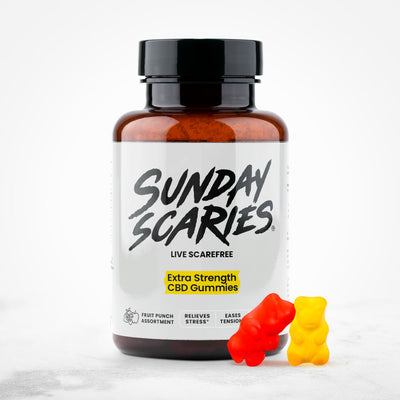 Extra Strength CBD Gummies
Stress Relief
Extra Strength CBD Gummies
Stress Relief
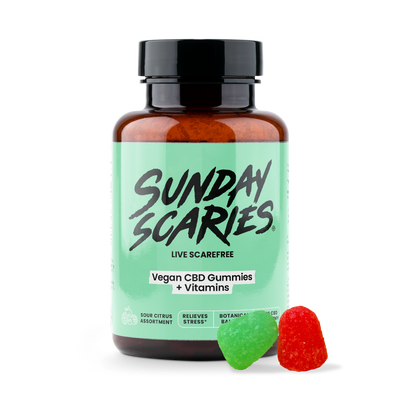 Vegan CBD Gummies
Stress Relief
Vegan CBD Gummies
Stress Relief
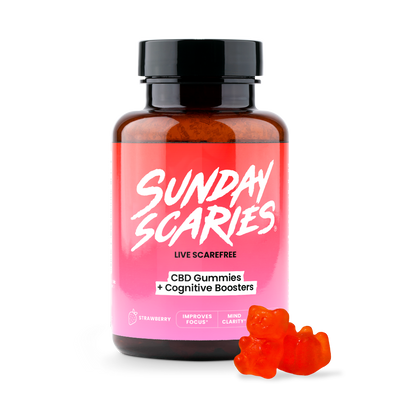 CBD Gummies for Focus
Focus Boost
CBD Gummies for Focus
Focus Boost
 CBD Candy
Mood Lift
CBD Candy
Mood Lift
 CBD Daytime Oil
Stress Relief
CBD Daytime Oil
Stress Relief
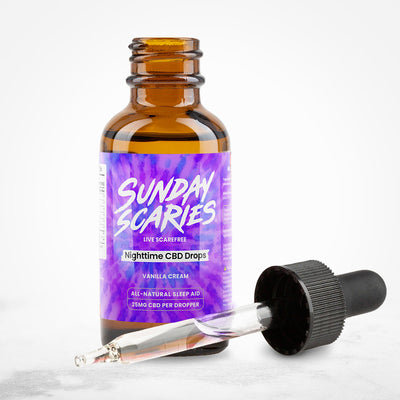 CBD Sleep Oil
Sleep Aid
CBD Sleep Oil
Sleep Aid
 CBD Dog Treats
Stress Relief
CBD Dog Treats
Stress Relief
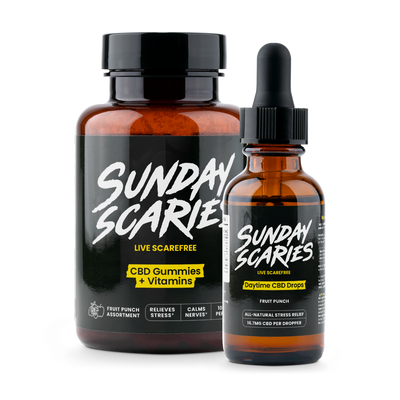 Side Piece Bundle
Stress Relief
Side Piece Bundle
Stress Relief
 Rando Bundle
Stress Relief
Rando Bundle
Stress Relief
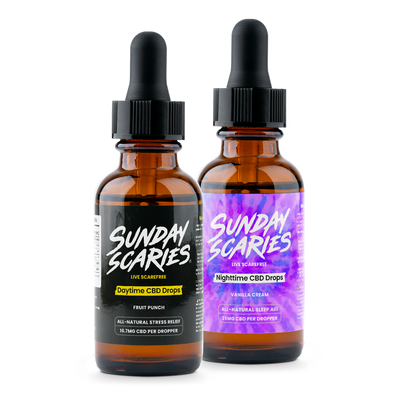 Sunrise & Sunset CBD Oil Bundle
Stress Relief
Sunrise & Sunset CBD Oil Bundle
Stress Relief
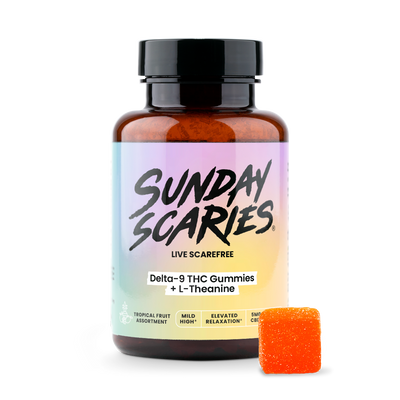 5mg Delta-9 Gummies
Euphoria
5mg Delta-9 Gummies
Euphoria
 10mg Delta-9 Gummies
Euphoria
10mg Delta-9 Gummies
Euphoria
 THC Gummies for Sleep
Sleep Aid
THC Gummies for Sleep
Sleep Aid
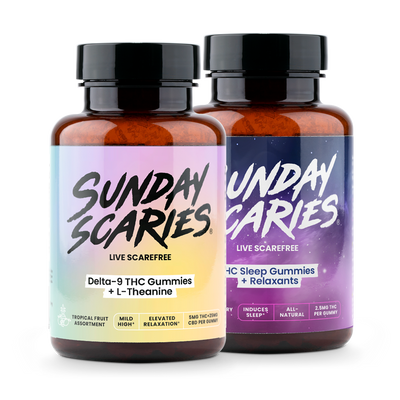 Day & Night THC Gummies Bundle
Stress Relief
Day & Night THC Gummies Bundle
Stress Relief
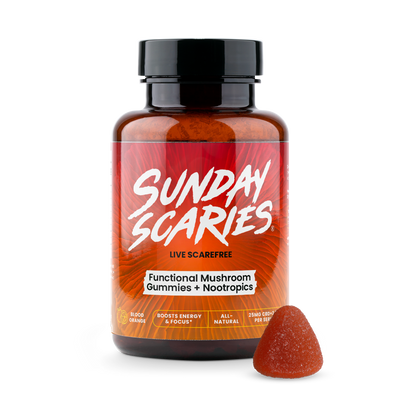 Mushroom Gummies
Focus Boost
Mushroom Gummies
Focus Boost
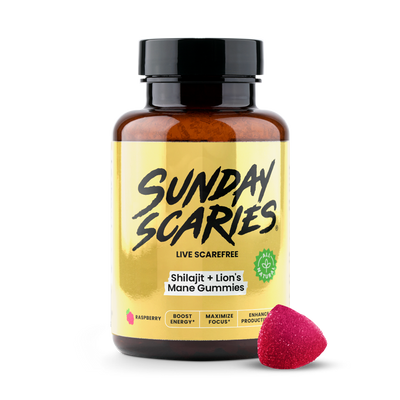 Shilajit Gummies
Focus Boost
Shilajit Gummies
Focus Boost
 Sunday Scaries Hat
Sunday Scaries Hat
 Sunday Scaries Dad Hat
Sunday Scaries Dad Hat
 Sunday Scaries T-Shirt
Sunday Scaries T-Shirt
 Sunday Scaries Pocket Tee
Sunday Scaries Pocket Tee
 Sunday Scaries Tank Top
Sunday Scaries Tank Top
 Sunday Scaries Sweatshirt
Sunday Scaries Sweatshirt
 Sunday Scaries Blanket Jacket
Sunday Scaries Blanket Jacket
 Sunday Scaries Sweatpants
Sunday Scaries Sweatpants

